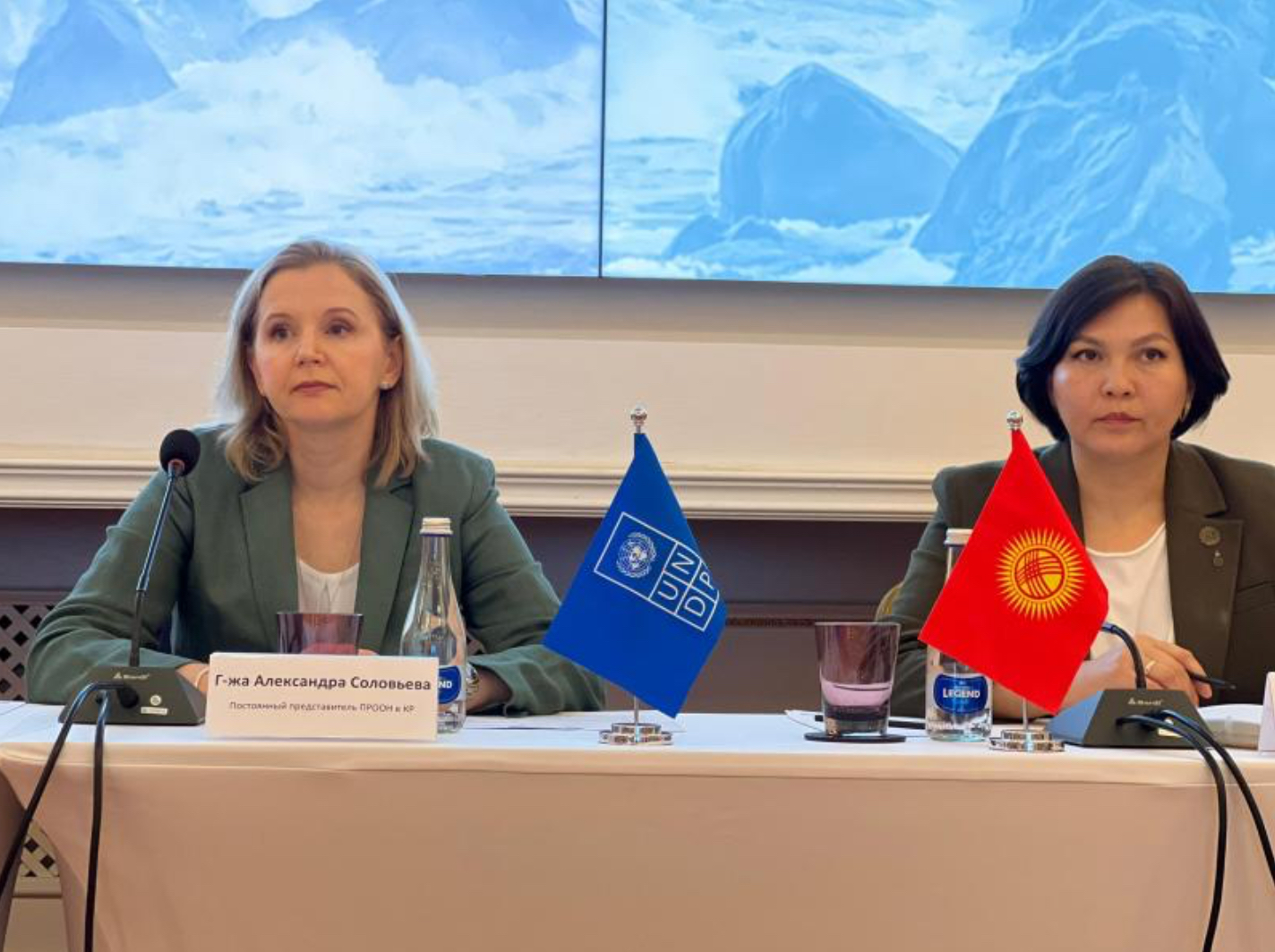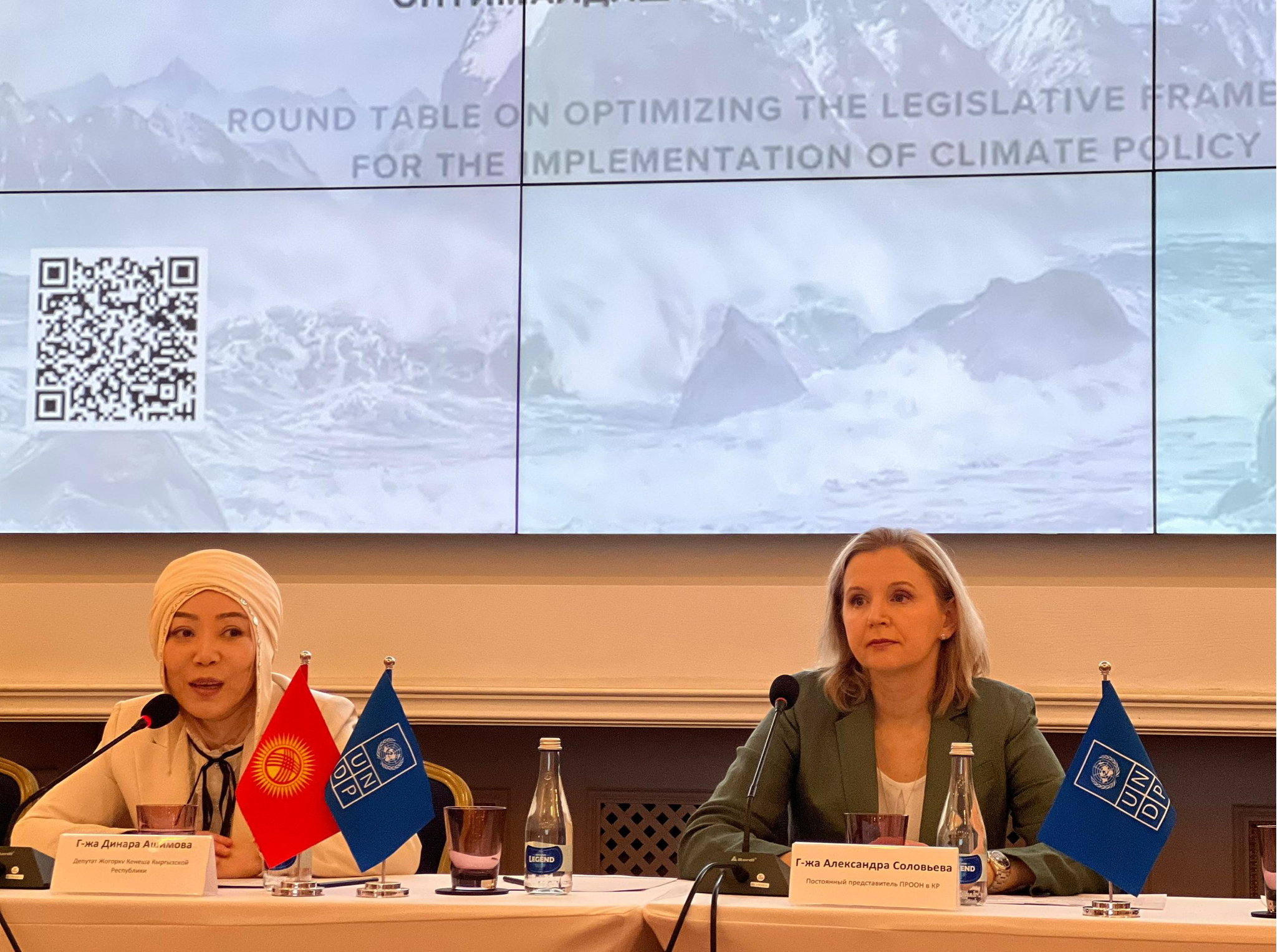A roundtable aimed at optimizing the legislative framework for climate policy implementation was convened in Kyrgyzstan on May 8. The event provided a platform to unite efforts and craft a robust legislative framework to address the challenges posed by climate change, thereby fostering sustainable development in Kyrgyzstan and the broader region.

Organized in collaboration with the Jogorku Kenesh, the Ministry of Natural Resources, Ecology and Technical Supervision of the Kyrgyz Republic, and the United Nations Development Programme (UNDP), witnessed the active involvement of stakeholders.
Kyrgyzstan confronts severe consequences of climate change, including rising average temperatures, diminishing precipitation, frequent and intense droughts, and an escalating risk of natural disasters. These pressing challenges necessitate concerted actions and innovative solutions.
The event assumes particular significance in translating international commitments into tangible actions on the ground. Consequently, the development of a cohesive action plan to enhance climate legislation at the national level marks a crucial stride forward. Participants also engaged in constructive dialogue on the execution of national climate policies.

Affirming the dedication of the President and Government of Kyrgyzstan to fulfilling ambitious climate objectives, the concept of achieving carbon neutrality by 2050 has been outlined. Additionally, the Nationally Determined Contribution Implementation Plan (NDC) has been formulated as the primary mechanism to curb emissions and bolster resilience against climate change.
Asel Raimkulova, Deputy Minister of Natural Resources, Ecology and Technical Supervision, stressed the importance of formulating national legislation that regulates greenhouse gas emissions and absorption while also encouraging innovation, supporting the development of clean technologies, and ensuring efficient resource use.
"Our aim is to formulate national legislation that not only regulates greenhouse gas emissions and absorption but also incentivizes innovation, fosters the development of clean technologies, and ensures judicious resource utilization," Asel Raimkulova voiced.

Collaboration with the Jogorku Kenesh on climate legislation establishes a framework wherein international accords are transposed into domestic laws, backed by requisite budgetary allocations.
Dinara Ashimova, a deputy of the Parliament, highlighted the need for the legislative framework to enable the transition to a low-carbon economy and facilitate job creation. She emphasized that optimizing legislation for climate policy implementation is crucial for achieving climate goals and ensuring environmental sustainability.
"Our legislative framework should facilitate the transition to a low-carbon economy and facilitate job creation. Streamlining legislation for climate policy implementation is pivotal for us to achieve our climate goals and ensure environmental sustainability," Dinara Ashimova remarked.
Follow Daryo's official Instagram and Twitter pages to keep current on world news.
Comments (0)